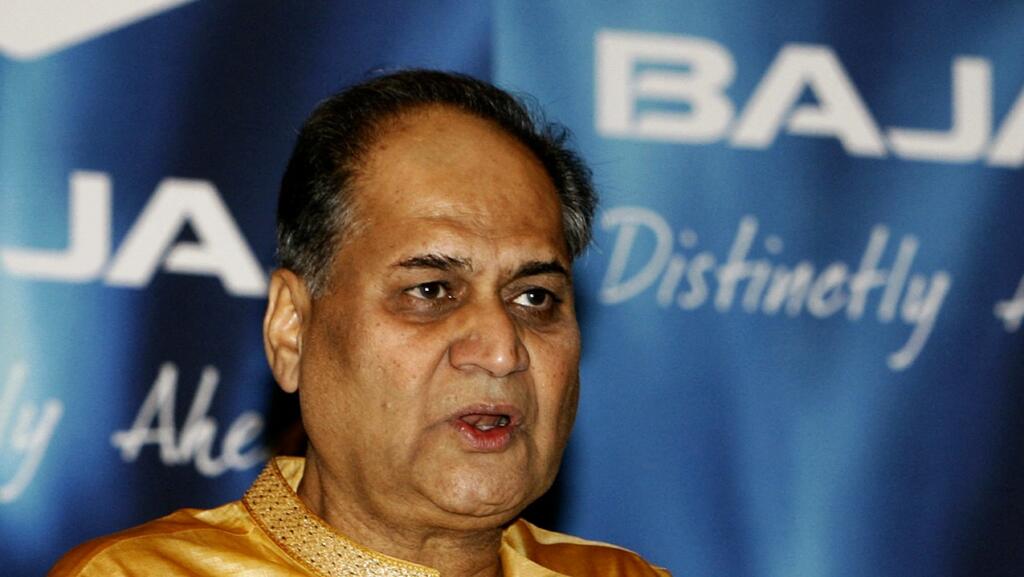Rahul Bajaj, Grandson of Jamnalal Bajaj, passed away yesterday at the age of 83. Rahul Bajaj belonged to a very prominent industrialist family that had roots in the pre-independence era and a very close association with Indian National Congress. He inherited the Bajaj Group from his father Kamalnayan Bajaj and expanded its presence by utilizing the family’s association with the Gandhi family.
In the pre-liberalization era, the names associated with India’s capitalist class were – Tata, Birla, and Bajaj. Although Tata was relatively global in its outlook and aimed to build world-class companies, most of the other business houses utilized the highly protected environment (lack of competition) to make the products that the consumers were forced to buy given the lack of alternatives, and Bajaj Group was one of them.
The in/famous video
After the scion of the Bajaj Family passed away, the commentariat opposed to the Modi government started sharing his December 2019 video of ET awards, in which the veteran industrialist said, “You are doing good work, but despite that we don’t have the confidence that you will appreciate if we criticise you openly.”
Modi haters are sharing this video with glee, calling Rahul Bajaj the only man with a spine.
I have an alternate take. Bajaj was everything that was wrong with India. Bajaj made substandard scooters that Indians rode with pride. Reason: There was no competition.
Cont… pic.twitter.com/OuFadwwTJd
— Atul Kumar Mishra (@TheAtulMishra) February 13, 2022
The family ties
The anger of Rahul Bajaj towards the BJP was very obvious given the ties between the Bajaj family and the Nehru Gandhi family. The two families are so close that Rahul Bajaj named his elder son (Rajiv Bajaj) after Rajiv Gandhi while Rahul Gandhi was named after the veteran industrialist. Rahul Bajaj often bragged that the name ‘Rahul’ was given by no other than Jawaharlal Nehru. While he vented anger towards PM Modi and Amit Shah, his affection and praise for Rahul Gandhi were very public as shown in the video below.
Also Read: Rahul Bajaj: An old Congress supporter, and old Modi hater and a supremely arrogant person
It is difficult for me to praise anyone said Rahul Bajaj except off course Rahul Gandhi. pic.twitter.com/R9tz4UjxuD
— Chhayank Mehta (@chhayank) December 1, 2019
The original sin of opposing economic liberalization
In 1991, when the PV Narasimha Rao government was dismantling the license quota raj to shackle the foundations of a socialist economy in India, few industrialists opposed it, and this group was led by Bajaj. The popular perception about industrialists in today’s India is that they support privatization and minimization of entry barriers.
But there had been a time, not long ago, when many industrial houses vehemently opposed economic liberalization. If an industrial house has an unsaid monopoly in a particular market and the government is minimizing the entry barriers to ensure more domestic and international players can enter the market, the monopolist is going to oppose it. And this is exactly what many business houses like Parle Group, Bajaj Group, Tata Group, did in the early 1990s when the Rao government was taking steps to liberalize the Indian economy.
Bajaj Group, which sold substandard scooters to Indians for decades, was more open and accused the Rao government of destroying the Indian economy. These facts are well-documented in media and academia as well as by scholars like Vinay Sitapati.
The fall of influence in new post-liberalized regime
In the last three decades, the market share of Bajaj Group, Parle Group, Tata Group, and many other industrial houses which were opposed to economic liberalization, has consistently fallen; thanks to the entry of new players. They were selling substandard products to Indian consumers given their monopoly and when the new players entered, these companies were cornered.
Three decades ago, Bajaj had a near-monopoly in two-wheelers while today it is in third place after Hero and Honda. Although the company adapted to increasing competition, it still could not maintain its leadership position, and now, is left with less than 20 percent of the market share. With the entry of foreign players as well as more efficient domestic players, all that is left of Bajaj scooters is the nostalgia of Chetak’s tilt and start.
Conclusion
Today, when the Modi government is completing the task left by the Rao government by dismantling the socialist pillars, business houses like Bajaj Group, Parle Group are not happy. Born, bred, and grown with the facade of secular ideals and having enjoyed the monopoly for decades under the socialist economy, these industrial houses and their scions like Rahul Bajaj threw the Modi government under the bus whenever they get a chance.
The new-age companies of the Bajaj Group like Bajaj Finance and Bajaj FinServ are doing exceptionally well. Recently the market valuation of the Group hit 100 billion dollars but 80% of that comes from financial services, not the legacy business (Bajaj Auto, Baja electricals) that sold low-quality goods to Indian consumers.
